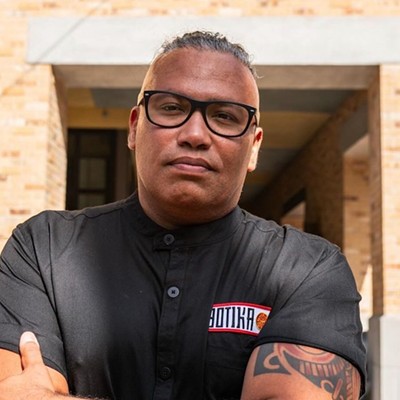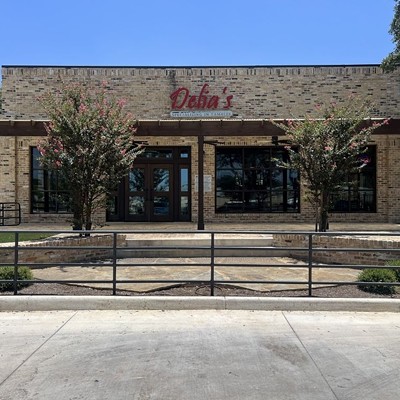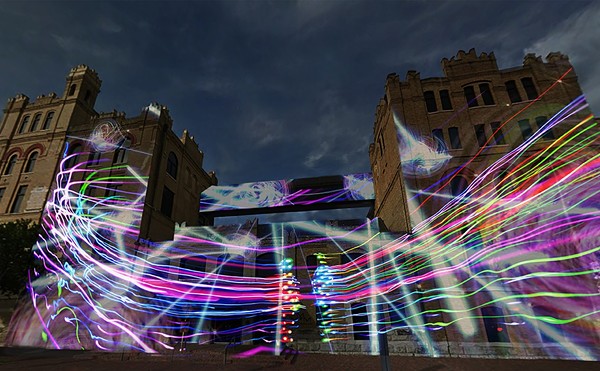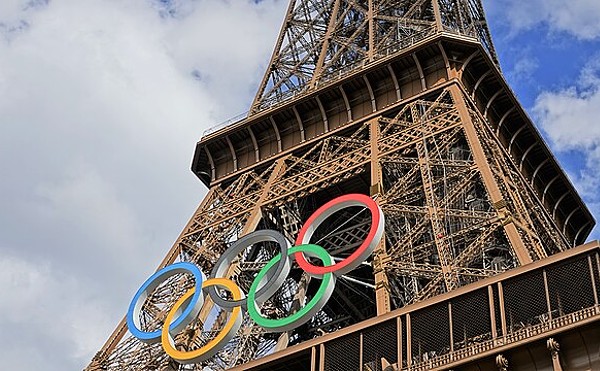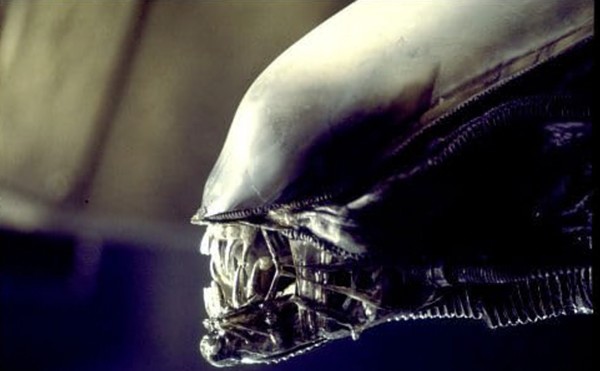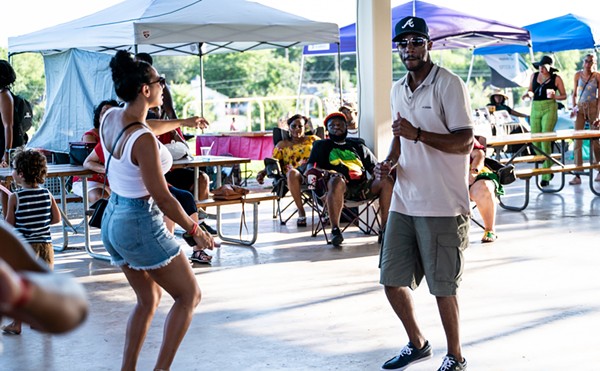The Current is pleased to present this exclusive excerpt from Robert Hilburn’s biography Johnny Cash: The Life, which will be released Tuesday, October 29. See here for an interview with Hilburn, longtime chief music critic for the Los Angeles Times as well as the only music journalist present at Cash’s iconic 1968 Folsom Prison concert.
In 1950, J.R. Cash enlisted in the Air Force just six weeks after graduating high school in his hometown of Dyess, Ark. Previously, Cash had left home only once before, for a disastrous stint working at an auto factory in Michigan. He headed to basic training at Lackland Air Force Base in San Antonio.
Cash did well there, later reporting to Keesler Air Force Base in Biloxi, Miss., and returning to San Antonio by way of Brooks Air Force Base for more training. His time in San Antonio, when he was just 19, helped him land his first wife and re-form his identity as “John,” and later “Johnny” Cash.
As J.R. said good-bye to his family at the station in Memphis and boarded the train for Lackland Air Force Base in San Antonio, Texas, the initial excitement of joining the service quickly gave way to nervousness. He found himself staring out the window, avoiding conversation with the other enlistees, some of whom seemed to relish the adventures ahead. One of his worries when he’d signed up had been getting sent into battle in Korea. He was now fretting over another kind of survival.
As with the trip to Michigan, he soon began asking himself if he hadn’t made a mistake. If anything, the failure of the Pontiac experience made him even more apprehensive. Would this trip, too, end in disaster? Was he smart enough to compete with the boys from the big city? Would the recruits from the North treat him with contempt like the doctor in Pontiac?
What about his spiritual values? He wasn’t used to being around alcohol, and he had never had a serious relationship with a girl. Would he be able to stay on the right path, or would he let Jack and his mother down? Could he actually flunk out? Would the Air Force send him home if he didn’t measure up?
The thought of that possible humiliation numbed him. He couldn’t shake his fear of what lay ahead. J.R. finally just laid his head against the seat and hoped, as he often did in moments of stress, to find that comfort in the escape of sleep.
•••••
John R. Cash, as he was now starting to think of himself, was one of thousands of men rushed through the revolving door of basic training at Lackland in the late summer of 1950, the normal thirteen-week training schedule cut to seven as the country mobilized for war in Korea. For someone whose high school class had numbered just twenty-two, the size of the operation was overwhelming.
After being trucked from the train station to Lackland, the new arrivals were quickly introduced to Air Force routine. They were given GI haircuts and issued dog tags, clothing, and supplies, then taken to the mess hall for dinner. Afterward, they were assigned places among the double-deck bunks that lined the main section of the two-story wooden barracks. Most of the recruits stayed up late memorizing their Air Force serial numbers, learning how to make their beds military-style, and getting to know one another. They didn’t get to sleep until shortly before being roused for a six a.m. roll call.
In rapid order that week, John and the others were administered typhoid and smallpox vaccinations. They were ordered to ship all their civilian clothes and shoes home, then given explicit instructions on just how to arrange their belongings in the footlockers by their bunks. The regimentation reminded him of the auto factory. He asked himself, Four years of this?
Even so, his immersion into Air Force life proved a blessing. Between the grueling physical training, intense classroom sessions, and battery of aptitude tests, Cash didn’t have time to brood over possible rejection or failure. He was so exhausted after the long, demanding days that he spent much of his Sundays, his only time off, sleeping. He rarely ventured out of the barracks except to go to church or pick up necessities from the PX.
While others in his training squadron grumbled about the lack of free time, John embraced the nonstop schedule. Though he hadn’t shown much interest in sports in school, he proved to be fairly athletic, mastering the various exercises designed to turn young men into soldiers. He did so well on the classroom instruction that others turned to him for help, just like the students had done at Dyess High.
Near the end of the stay at Lackland, John’s squadron took yet another round of aptitude tests, and he showed potential in several areas, including air police, aircraft mechanic, and radio operator. He didn’t know exactly what the last entailed, but he liked the sound of “radio.” When his application for that school was accepted, John was overjoyed. He had stood up against the big city boys and, in most cases, outshone them.
When he went home to Dyess for a few days before reporting to Keesler Air Force Base in Biloxi, Mississippi, for more training, he felt like he belonged in his blue Air Force uniform. Even his father offered a rare handshake. During the third week of September, John R. Cash’s family again said good-bye to him in Memphis, but this time his mood was entirely different. John’s earlier nervousness was gone. On this trip, he didn’t stare anxiously out the window. When he finally went to sleep, he wasn’t looking for escape. He was looking forward to the six months in Biloxi. He was eager to get to know his classmates better, maybe play some music, and maybe even meet some girls.
•••••
During his final weeks at Keesler, John was rewarded for his hard work when he was approached about joining a new, elite group of radio intercept operators. The USAF Security Service was set up in the fall of 1948 in response to the increasing complexity of enemy communication techniques.
Security Service bases were located in Alaska and several foreign countries, including Japan, Korea, and Germany.
After interviews and a detailed security check, John was formally invited to join the unit and given his choice of duty in remote Adak, Alaska, or Landsberg, West Germany. They were choice outposts, reserved for the most promising intercept operators. The selection process didn’t focus just on test performance, but also weighed character, intelligence, and emotional stability. John opted for Landsberg because he wanted to see the sights of Europe.
To his great frustration, the security operation was so top secret that he was prohibited from telling anybody, including his family, about the delicate nature of his assignment. All he could say was that he was going to be stationed in Landsberg. But first he had to go through four more months of intense training to sharpen his intercept skills. On April 27, he headed back to San Antonio, this time to Brooks Air Force Base.
•••••
By late May, John was settled enough to begin thinking about life overseas, and again, he daydreamed about having someone special back home. Six months earlier he would not have had the nerve even to approach a girl he didn’t know. But his success in the training classes emboldened him—to a point. He began looking for a girl of his own everywhere he went in San Antonio, from movie theaters to cafés. It was easier said than done.
While his Air Force blues caught the eye of young girls, his shyness and his insecurity over his dirt farm roots resurfaced, making it hard for him to introduce himself to them. How, he kept asking himself, could anyone from Dyess stand up to a sophisticated big city girl? Even if he got a girl’s attention, John found himself unable to keep the conversation going for long. “Surely,” he kept thinking, “she’ll see right through this Air Force uniform and dismiss me as some hillbilly.”
After all the setbacks, John had little reason to believe that July 18, 1951, a Wednesday, would be any different. He and a friend were heading back to Brooks after a movie when John spotted the St. Mary’s roller rink, and it reminded him of the good times he’d had skating in Dyess. Specifically, he remembered the way girls used to show up eager to meet boys.
Dragging his friend along, John headed for the rink. It was near closing time, but he rented a pair of skates anyway and watched groups of young girls skating by. That’s when he spotted someone he would later describe as the prettiest girl he had ever seen. She was petite—no more than five feet, ninety-five pounds—and she was skating with a girlfriend. He watched her for a few minutes, hoping she’d stop so he could introduce himself. But the pretty brunette kept circling the rink. The pressure on him increased when the announcement came over the loudspeaker that the rink was closing in fifteen minutes.
Almost before he knew what was happening, John started skating slowly toward the girl, not stopping until he actually bumped into her. To anyone watching, it would have looked like a scene from a screwball comedy. When the girl fell to the ground, John reached down to help her up, apologizing profusely. Though he wouldn’t find out until later, Vivian Liberto had been watching him, too, hoping he would come over and say hello. She might even have exaggerated the impact of their encounter and fallen on purpose.
Rather than J.R. or even John, he told her to call him “Johnny,” the first time anyone could recall his using that name. It was as if he wanted something new and more personal, a sign perhaps of just how fast and hard he’d fallen for this young beauty. Johnny stared into her hazel eyes and at her light bronze skin, trying to figure out what to say. Finally he blurted out, “Would you like to skate with me?”
When she replied yes, Johnny felt his heart racing. Crazily enough, the shy boy from Dyess started singing to her, but not one of his country favorites. Probably fearing she might have no interest in country music, he chose a pop song, “I Still Feel the Same about You,” which was a current hit by Georgia Gibbs. It was perhaps an odd selection, because the song wasn’t a tale of romantic bliss but an apology for having broken a girl’s heart.
Vivian was flattered. It was the first time anyone had sung to her. As they continued to skate, Johnny told her that he was from Arkansas and was going to be sailing to West Germany soon. She in turn said she was seventeen and a senior at an all-girls Catholic high school. Johnny was so dazzled by her that the Catholic part didn’t even faze him, despite all the whispering he’d heard in Dyess about the mysterious religion.
As they circled the rink, Johnny pretended he was a novice skater, which encouraged Vivian to hold onto him frequently because she thought he was about to fall. When the house lights flickered, indicating closing time, John felt himself panic. He didn’t want to let this girl go. “Can I take you home?” he blurted out, and his spirits soared when she answered, “Sure.”
Because he didn’t have a car, John had to accompany Vivian home on the bus. On the way, he learned that her family had deep roots in San Antonio. There was a popular market named Liberto’s, and one of her uncles had started the first Spanish-speaking radio station in town. Her father, Tom, owned an insurance agency and her mother was a homemaker. She had a younger sister and an older brother. When they arrived at her front door, he asked if he could see her again. After she said she’d like that, he leaned over and tried to kiss her. Stepping back, she said, “I don’t kiss boys on the first date.”
It may not have been the reaction John hoped for at the time, but it was, in fact, the perfect answer.
Cash was attracted by Vivian’s beauty, but he also quickly decided that Vivian was a “good” girl and that she’d make a faithful, loving wife and a caring mother. And, he would soon learn, she was even a fan of country music. If he had known that, he joked years later, he would have sung her an Eddy Arnold song. Within a week, he was thinking he would someday marry her.
In her room that night, Vivian retraced every moment of the evening. She told herself she had found her Prince Charming. She spent much of the night tossing and turning, wondering if he’d really call. Her answer came early the next morning. John called not just that day but every other day until he left Brooks in early August. The pair also went out every time he could get away. They went to movies. They went to the malt shop. They went window-shopping. They held hands and strolled along the city’s picturesque River Walk in the moonlight. It wasn’t long before Johnny got that first kiss while they sat on the roof of a car at a drive-in. Soon after, he carved J.C. Loves V.L. on one of the wooden benches along the River Walk. They daydreamed about the future. They were collecting a remarkable number of memories for just three weeks together.
Even though Vivian’s father was concerned about his “baby” dating an Air Force man, Vivian’s younger sister, Sylvia, remembers that her parents couldn’t help but like this polite, respectful young man who said “Yes, ma’am” and “No, sir” without fail. Still, Sylvia recalls, her father was relieved when he learned Johnny was finally leaving for his new assignment in Germany. There was no way, he figured, that the relationship would last.
But Johnny convinced himself that it would. He told Vivian—or “Viv,” as he began calling her — that he loved her, would always love her, and wanted to spend his life with her. He told her he would write a letter every day—and he made her promise to do the same.
It was heady stuff for a nineteen-year-old boy, but it was even more of a fairy tale for a seventeen-year-old girl. He seemed so mature in his uniform. She also thought he was smart, caring, a man of faith, and, of course, very, very sexy.
Johnny wanted to make love to her, but she refused. In reality, he probably didn’t try that hard, because he didn’t want to jeopardize his new dream by giving her the wrong impression of his intentions. One day, he told himself over and over, Vivian Liberto would be Mrs. Johnny Cash and he’d be a singer on the radio. This vision gave him immense comfort as he returned to Dyess in the final days of August. He had promised Viv he would call her before the ship left Brooklyn for West Germany, but he couldn’t wait.
On the morning of September 4 he called from Dyess, and she was thrilled to hear his voice. In a letter he wrote her later that same day, he asked her to send him a large photo so he could put it over his bed in Germany and look at it every morning and night. He enclosed a photo he’d had taken at the base. He ended by urging, “Write, honey.” Seven days later, he wrote her the first of several letters from Camp Kilmer in New Jersey, where he and other members of what would eventually be named the 6912th Security Squadron were being assembled before they left for Germany. He signed it
“Love, Johnny.”
Excerpted from the book JOHNNY CASH: The Life by Robert Hilburn. Copyright © 2013 by Robert Hilburn. Reprinted with permission of Little, Brown and Company; all rights reserved.
Johnny Cash: The Life
By Robert Hilburn | Little Brown and Company | $32 | 704 pp


